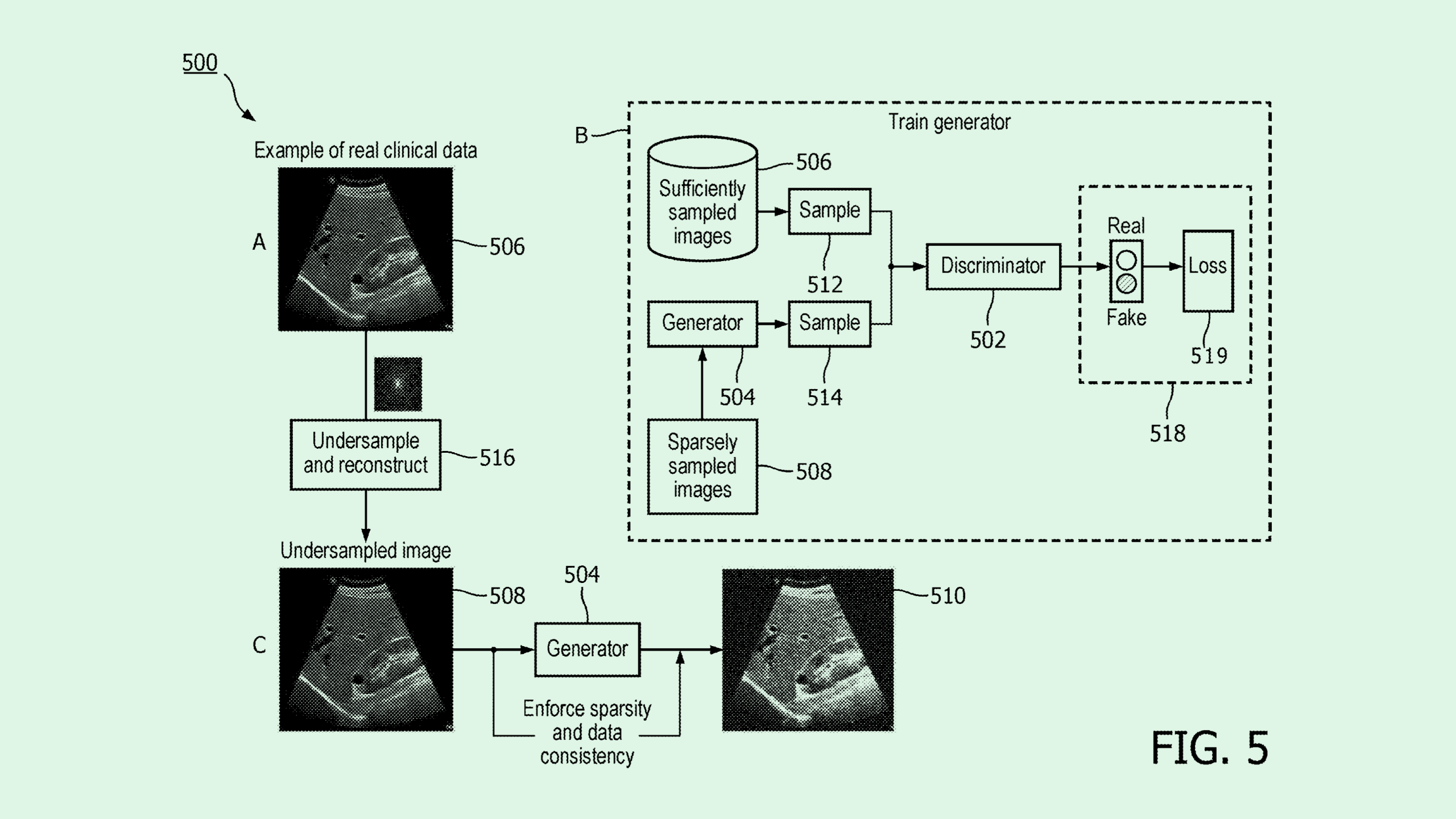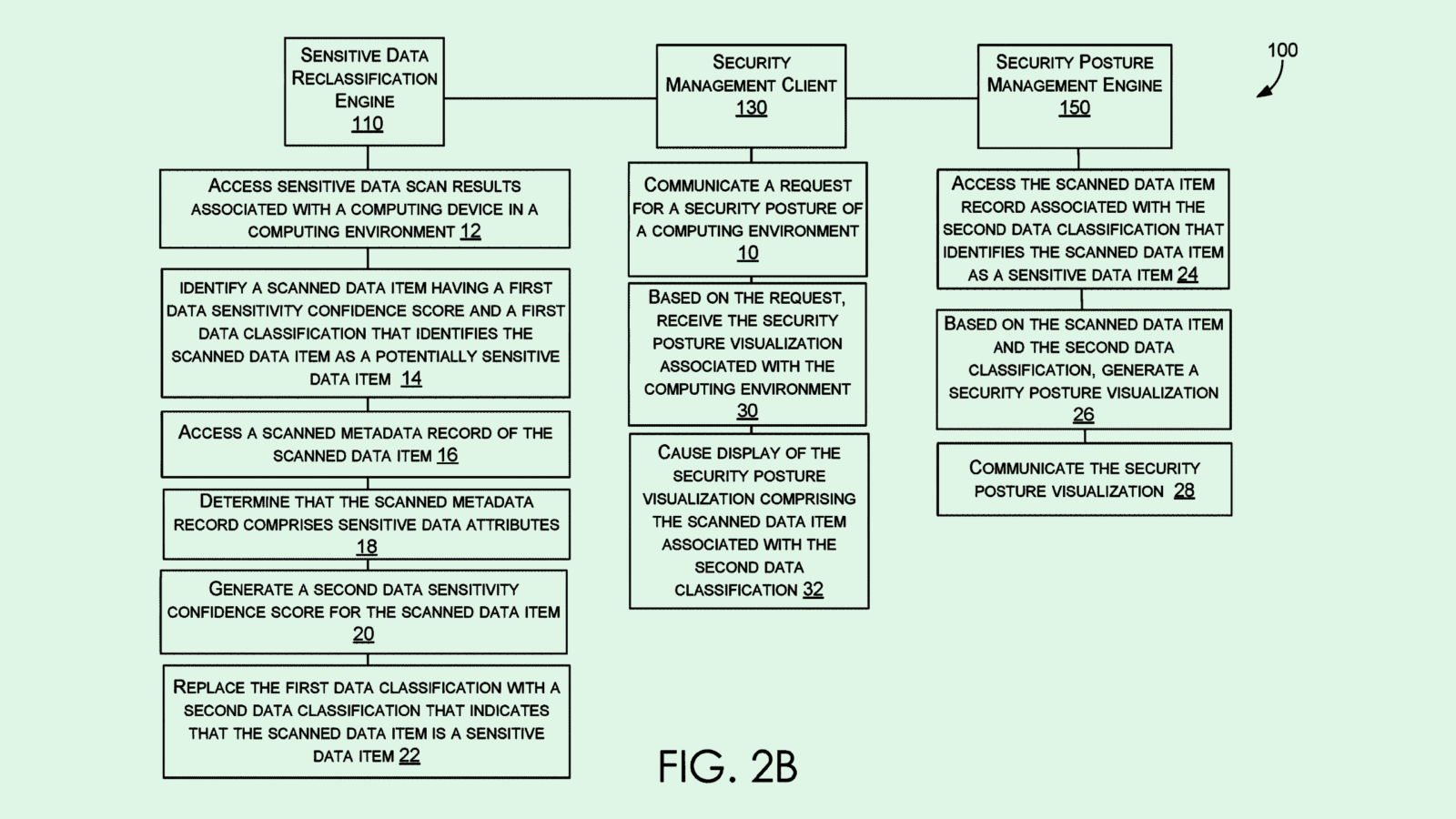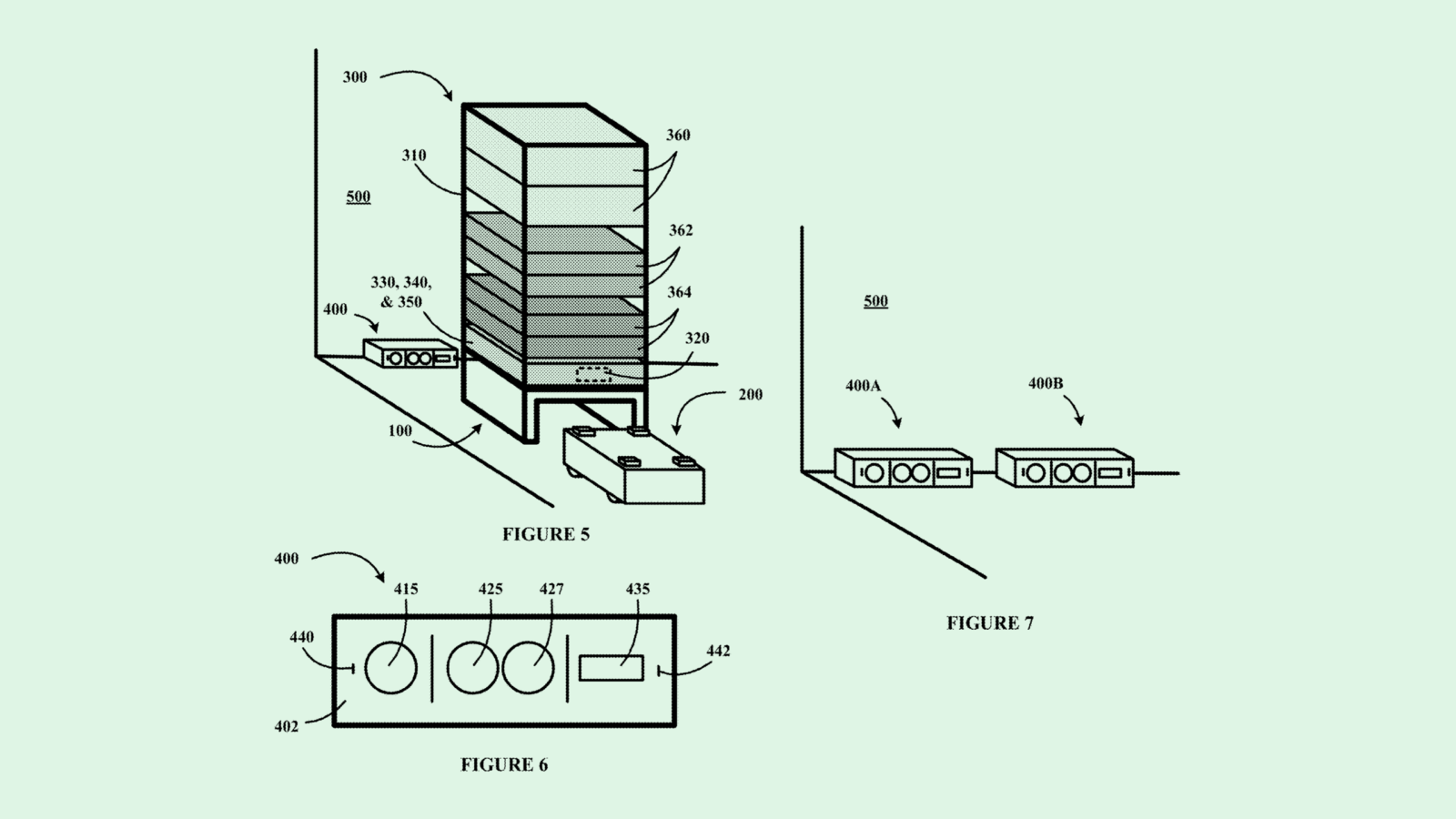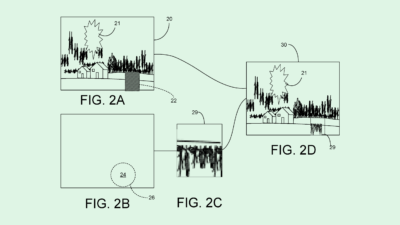Philips’ AI Ultrasound Patent Could Help Solve Healthcare Data Problem
A patent for generative neural network-based ultrasounds from medical device firm Philips could provide more data to develop AI innovations throughout healthcare.

Sign up to uncover the latest in emerging technology.
Philips may soon invite AI into the doctor’s office.
The medical devices firm filed a patent application for an ultrasound system that uses a neural network to produce images from “undersampled data.” To put it simply, Philips’ tech uses a generative neural network to create high-quality medical images despite incomplete data.
While similar techniques exist, they “may excessively smooth images, reduce speckle information, and/or introduce artifacts,” Philips said in the filing. “Some techniques for reconstructing images may be so computationally intensive that they cannot provide reconstructed images from undersampled data in real time or near real time, reducing their utility.”
The core of Philips’ tech relies on a neural network trained on fully sampled data (complete datasets) as well as undersampled data (partial datasets derived from the original fully-sampled data).
The model is trained to reconstruct entire images from the partial data and attempt to make the new images as realistic as possible. To put these images to the test, a “discriminator” will try to distinguish real images — those made from fully sampled data — from fake ones, generated by the neural network. The model then creates and improves the images until the discriminator can’t tell the difference.
Along with reducing false positives and negatives, Philips’ imaging system may “provide high quality images with diagnostic value” faster than conventional techniques, the company noted.
Philips’ patent is one example of how AI may play a growing role in the healthcare system. Whether it be diagnosis, imaging, drug discovery, recordkeeping, or note-taking, the ecosystem is ripe for AI innovation, said Dr. Ronald Razmi, co-founder and managing director of health tech-focused VC firm Zoi Capital.
However, data may stand in the way of these innovations, said Razmi. For one, AI commonly faces data-security issues, as these models can leak their training data simply by being fed certain prompts.
Plus, as it stands in the US, the Health Insurance Portability and Accountability Act, commonly known as HIPAA, places health data under lock and key, making training models used in healthcare all the more difficult.
“HIPAA is a pain in everybody’s neck when it comes to AI,” said Razmi. “It’s very necessary, because it’s protecting people’s privacy, it enforces companies that handle patient data to take security measures … but when it comes to the speed of innovation, data sharing, data pooling, and so forth, it definitely acts as a barrier.”
But synthetic data, as Philips’ patent seeks to create, may provide a solution to this issue, said Razmi. Because synthetic data is modeled on real data, but not representative of any individual patients, it provides an extra layer of protection, said Razmi. Synthetic data has been explored as a solution by several different tech firms, with Meta, Nvidia, IBM, and more seeking patents to put the tech to use.
“If you don’t have enough data to create a good algorithm, you can use what data you have to train AI to create new data, and you can train a better model,” said Razmi. “You can fill in the gaps.”











